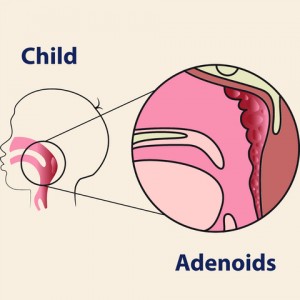
- Graves’ Disease: General Overview - September 25, 2017
- The Effect of Bulimia on the Parotid Gland - September 25, 2017
- Graves’ Disease: Treatment Overview - September 25, 2017
- Question: How do the ingredients in e-cigarettes and vaporizers affect respiratory health? - August 16, 2019
- Bad Technique and Vocal Injury - January 9, 2019
- Is Edible Marijuana Dangerous for the Voice? Myths Dispelled - December 18, 2018
- Surprise! You have a hemorrhage - January 31, 2018
- Graves’ Disease: Treatment Overview - September 25, 2017
- Adele and the Stigma of Vocal Injury - July 11, 2017
- Vocal Curbside Consult: How does the thyroid affect the voice? - May 16, 2017
- Vocal Curbside Consult: How do hormones affect the voice? - May 3, 2017
- Vocal Curbside Consult: How do emotion and stress affect the voice? - April 17, 2017
- Vocal Curbside Consult: Vocal Recovery After Illness - April 7, 2017
What is Graves’ Disease?
The thyroid gland is an endocrine gland located on the front of the neck below the larynx. It’s function is to produce hormones, called T3 and T4 hormones, that control metabolism. These hormones regulate breathing, heart rate, body weight, muscle strength, body temperature, cholesterol levels, and much more. Therefore, when hormone production is disrupted, the change has a tremendous effect on the entire body.
Graves’ Disease is an autoimmune disease that results in the overproduction of thyroid hormones, or hyperthyroidism. It can occur in anyone but is most common in women under the age of 40. The most common risk factors include a family history of the disease and/or the existence of another autoimmune disease in the patient.
An autoimmune disease is a disease in which the body sees its own cells and tissues as foreign and produces antibodies that attack the tissues the same way it would attack a foreign invader, such as bacteria. In Graves’ Disease, the body produces an antibody that interferes with the operation of the thyroid gland. These antibodies, called Thyroid Stimulating Immunoglobulins (TSI) bind to receptor cells in the thyroid gland, resulting in hyperthyroidism, or elevated thyroid hormone levels. TSI over-stimulates the thyroid gland and tricks it into producing an excess amount of hormones. It is unknown what causes the body to produce these antibodies.
Graves’ Disease results in a multitude of symptoms due to the thyroid’s expansive role in the body. Symptoms include:
- Exophthalmos: abnormal protrusion of the eyeballs. This is the symptom most commonly associated with Graves’. TSI antibodies cause an inflammatory response in the eye muscles resulting in swelling of the surrounding tissues. Because the eye-sockets are made of bone, the swollen tissues have nowhere to go except outward, which results in the appearance of bulging eyes.
- Goiter: the enlargement of the thyroid gland due to iodine deficiency. Goiter results in difficulty swallowing, coughing, and difficulty sleeping.
- Graves’ dermopathy: thickening of the skin on the lower leg marked by patchy, pink lesions.
- Weight loss
- Anxiety
- Insomnia, restlessness, & irritability
- Tremors
- Heat intolerance & sweating
- Chest pain & palpitations
- Increased bowel movements
- Irregular menstrual periods
- Muscular weakness

What happens if Graves’ is left untreated?
Left untreated, Graves’ Disease can be fatal. It can result in heart rhythm disorders or congestive heart failure. In pregnant women it may result in preterm birth or miscarriage. In severe cases of hyperthyroidism, the disease can cause a thyroid storm, or a sudden and dramatic increase in production of thyroid hormones. Thyroid storm is life-threatening and requires immediate medical attention. The surge of hormones causes high fever, vomiting, diarrhea, weakness, delirium, seizures, profuse sweating, irregular heart beat, low blood pressure, and possibly coma.
What are my treatment options?
There are three methods used to treat Graves’ Disease: Anti-Thyroid Drugs (ATD), Radioactive Iodine Ablation (RAI), and surgery to remove a portion or all of the thyroid gland. Each method has advantages as well as limitations therefore treatment plans are personalized.
Key Points
- Graves’ Disease is an autoimmune disease in which the body produces antibodies that trick the thyroid gland into producing an excess amount of hormones, which is called hyperthyroidism.
- Because of the thyroid’s numerous functions, symptoms vary greatly. The most common is known as exophthalmos and results in the appearance of bulging eyes.
- If left untreated Graves’ Disease can cause a multitude of fatal complications including thyroid storm, a sudden and dramatic increase in hormone production.
- The three treatment options are Anti-Thyroid Medications, Radioactive Iodine Ablation, and surgery. Each has benefits and risks therefore treatment plans are personalized.
To learn more about Graves’ Disease of thyroid surgery, please visit: www.ohni.org.



